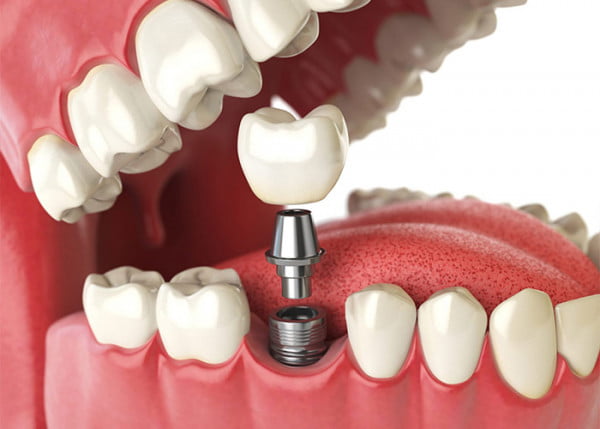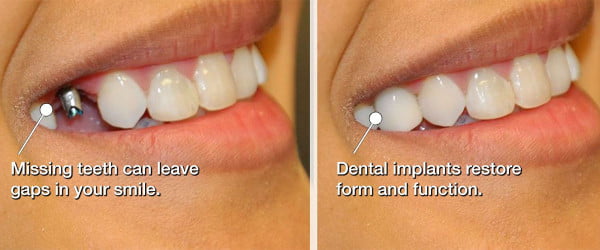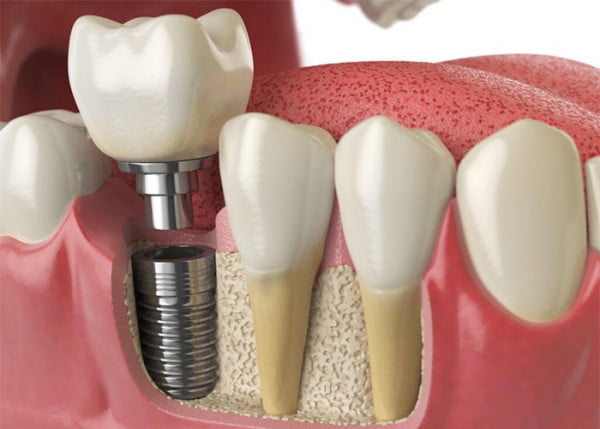Dental implants are a common choice for replacing missing teeth. They offer a long-term solution that can enhance your smile and improve your ability to chew and speak properly. But what is the lifespan of dental implants? This blog post will delve into this question in detail.
How long do dental implants last?
The lifespan of dental implants can vary depending on several factors, such as the patient’s oral hygiene habits, overall health, and the quality of the implant placement. However, with proper care and maintenance, dental implants can last a lifetime in many cases. It is important to follow your dentist’s instructions for brushing, flossing, and regular check-ups to ensure the longevity of your dental implants.
The Average Lifespan of Dental Implants
According to a study published in the Journal of Dental Research, the average lifespan of dental implants is about 25 years. This study followed patients who had dental implants for up to 16 years and found that the success rate was 94.5%. Another study published in the International Journal of Oral and Maxillofacial Implants reported a success rate of 95.7% after 10 years. These studies demonstrate that dental implants can provide a long-term solution for tooth replacement with a high success rate.
Seemore: Crown Teeth Before and After.

In conclusion, while the lifespan of dental implants can vary, they can last a lifetime with proper care and maintenance. The average lifespan of dental implants is around 25 years, but many patients have had successful dental implants for much longer. It is important to discuss your options with a qualified dental professional to determine if dental implants are the right choice for your individual needs.
What Affects the Lifespan of Dental Implants?
The lifespan of dental implants can be affected by several factors, including the level of expertise of the dentist, bone density, medical conditions, the brand of dental implant used, and lifestyle and habits.
Factor 1. The Level of Expertise
The level of expertise of the dentist who performs the dental implant procedure can have a significant impact on the lifespan of the implant. An experienced and skilled dentist is more likely to place the implant correctly, which can help ensure its longevity.
Factor 2. Bone Density
Patients with low bone density may experience a decreased lifespan of their dental implants. This is because the implant needs a certain amount of bone density to properly integrate with the jawbone. Patients with low bone density may require bone grafting procedures before the dental implant can be placed.
Factor 3. Medical Conditions
Certain medical conditions can also affect the lifespan of dental implants. For example, patients with cancer, uncontrolled diabetes, and autoimmune diseases may experience complications that can impact the implant’s longevity. It is important to discuss any medical conditions with your dentist before undergoing a dental implant procedure.

Factor 4. Dental Implant Brand
The brand of dental implant used can also impact the lifespan of the implant. Some brands may have a higher success rate and longer lifespan than others. It is important to choose a reputable brand and discuss your options with your dentist.
How to Choose the Right Brand: When choosing a dental implant brand, it is important to consider several factors, including the implant’s success rate, lifespan, and cost. Your dentist can help you choose the right brand based on your individual needs and budget.
Seemore: What is silver teeth crown?
Factor 5. Lifestyle and Habits
Lifestyle and habits can also impact the lifespan of dental implants. For example, patients who smoke or use tobacco products may experience a decreased lifespan of their implants. It is important to follow your dentist’s instructions for proper care and maintenance of your dental implants to ensure their longevity.
In conclusion, the lifespan of dental implants can be affected by several factors, including the level of expertise of the dentist, bone density, medical conditions, the brand of dental implant used, and lifestyle and habits. Patients should discuss these factors with their dentist before undergoing a dental implant procedure to ensure the best possible outcome.
How to Maintain Your Dental Implants
Proper care and maintenance are essential for the longevity of dental implants. Patients should follow their dentist’s instructions for brushing, flossing, and regular check-ups. It is also important to avoid hard or sticky foods that can damage the implant or the surrounding teeth. Patients with dental implants should schedule regular cleanings with their dentist to ensure the implant remains clean and free of plaque buildup.

Why Are Dental Implants So Durable?
Dental implants are made from high-quality materials such as titanium, which is strong, lightweight, and biocompatible. This material allows the implant to integrate with the jawbone, creating a stable and durable foundation for the replacement tooth. Additionally, dental implants are custom-made to fit the patient’s unique needs, which helps ensure their longevity and durability.
Explormore: Trios 3shape scanner.
Dental Implants in Marysville, OH – Dentist For Life
If you’re looking for high-quality dental implants in Marysville, OH, Dentist For Life can help. Our experienced and skilled dental professionals use the latest techniques and technology to provide our patients with the best possible outcomes. We offer a range of dental implant options to meet your individual needs and budget. Contact us today to schedule a consultation and learn more about our dental implant services.



